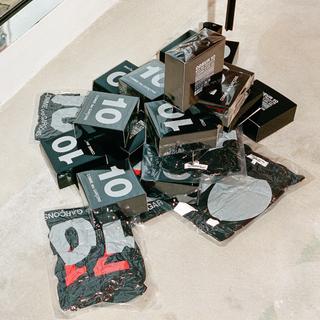


The smell of dry-cleaning, the odor of a garage: Comme des Garçons' non-conformist fragrances
FeatureFor 30 years, under the leadership of Christian Astuguevieille, the Japanese label has seduced with its singular compositions, inspired by the scents of everyday life. The label's latest creation, Odeur 10, is a far cry from the usual codes of luxury perfumery.
Rei Kawakubo doesn't like peace and quiet in the bottle. The designer and founder of Comme des Garçons ("Comme des" for aficionados) has long since chosen her camp: dissonance versus harmony. Yet it was almost impossible to create an olfactory translation of the deconstructed fashion of this Japanese designer, made of asymmetry and deliberate rips, whom some dared to describe in the 1980s as "Hiroshima chic." In 1994, she entrusted Christian Astuguevieille, a visual artist who had worked for Rochas and Nina Ricci, with the difficult task of writing the manifesto of an "anti-perfumery".

He had the idea of transposing surrealist collages and monochromes from the artistic avant-garde into a perfume industry whose rules had been laid down a century ago. The newly-appointed creative director set about inventing an original new discourse. "I use an everyday language with them, which is exactly that of the person wearing the perfume. I never wanted to become an expert in raw materials." His language is much more pictorial than technical. Nose Antoine Maisondieu remembers that a request once made by Astuguevieille went something like this: "The evocation of a cargo ship trapped in the ice with its mint cargo."
This is a far cry from the enduring image of endless jasmine fields in Grasse, an iconic perfume town next to Cannes, in southern France. "I remember a discussion during which he imagined creating a scent around the figure of Tinkerbell, who suddenly disappears and reappears," said an amused Natalie Gracia-Cetto, nose at Givaudan. It's as if it was very important for him to avoid the pitfall of the predictable, overdone, good-smelling pretty. "I've always asked perfumers to break the harmony of their formula with an accident, a scratch, and to be wary of a form of perfection that can become worrying. I rather like the idea that our fragrances have flaws, like us," explained Astuguevieille.
You have 72.07% of this article left to read. The rest is for subscribers only.
